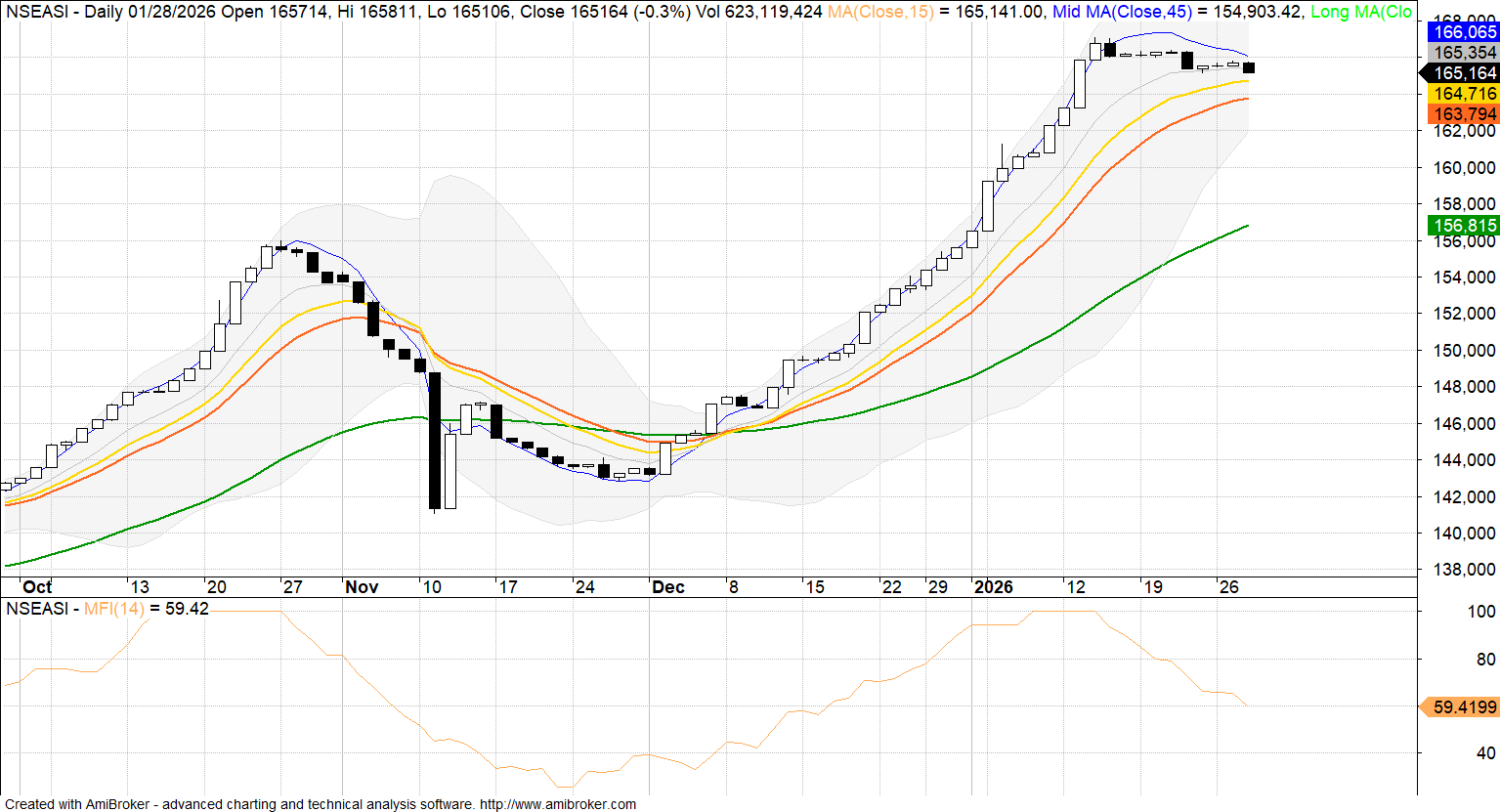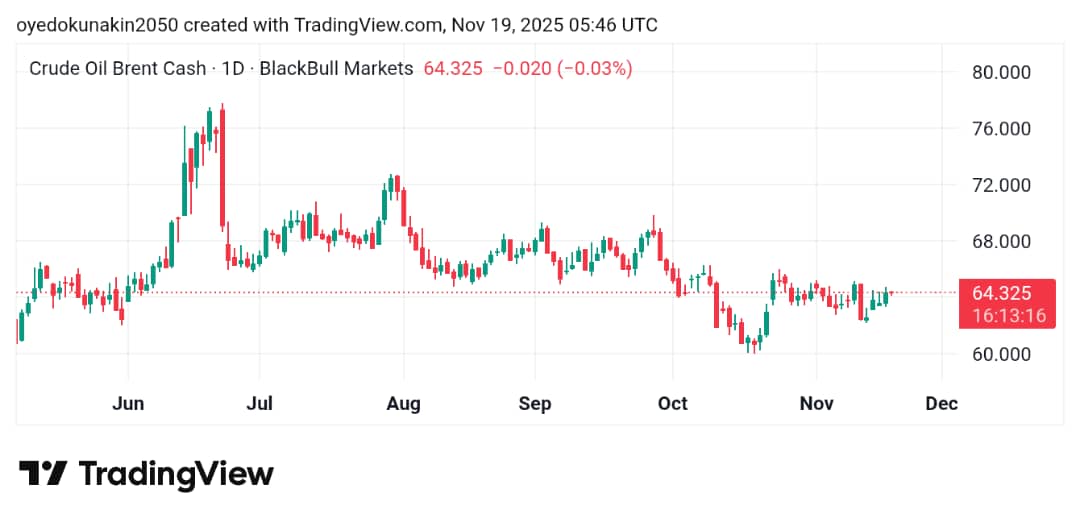
Akintunde Oyedokun
Research Analyst
Oil prices fell on Wednesday as weak manufacturing data from China and the U.S., alongside a stronger dollar, dampened demand. Brent crude slipped to $64.07 a barrel, while WTI dropped to $60.13. Losses were limited by a sharp decline in U.S. gasoline and distillate inventories, despite a rise in crude stockpiles.
The dollar’s strength made oil costlier for non-U.S. buyers, pressuring demand. Investors now await official U.S. inventory data for further direction on market sentiment.
Canada’s Services Sector Ends 11-Month Slump in October
Canada’s services industry returned to growth in October, with the PMI rising to 50.5 after nearly a year of contraction. The modest rebound suggests improving stability, though business confidence remains weak amid trade and political uncertainty. Employment and new orders continued to decline slightly, while manufacturing showed signs of recovery.
U.S. Services Sector Grows in October Despite Weak Hiring
U.S. services activity expanded in October as new orders rose, with the ISM nonmanufacturing PMI climbing to 52.4 from 50.0 in September. However, employment remained weak for the fifth straight month amid economic uncertainty and trade tensions. While input prices increased moderately, export demand and backlogs declined. Economists say tariffs, AI adoption, and reduced immigrant labor are weighing on job growth despite steady business activity.
Ghana Inflation Drops To 8%, Lowest In Three Years
Ghana’s inflation eased for the tenth straight month, falling to 8.0% in October from 9.4% in September — its lowest level since June 2021, according to the national statistics service. Government statistician Alhassan Iddrisu attributed the decline mainly to lower food prices, noting that the country’s disinflation process is firmly on track. The central bank’s inflation target stands at 8% ±2%, as Ghana gradually recovers from its worst economic crisis in decades. Meanwhile, the IMF recently reached a staff-level agreement with Ghana on the fifth review of its ongoing loan program.
Nigeria To Invest N12 Billion In Digital Economy Research
The Nigerian government will spend N12 billion on digital economy research to boost the country’s global tech presence. Funds will support three university-led research clusters focused on artificial intelligence, connectivity, and digital skills. The initiative aims to strengthen research capacity, promote inclusive digital development, and integrate digital literacy into schools from 2026. Officials stressed that innovation should remain ethical, citizen-centered, and supported by education and regulation to secure the digital space.












